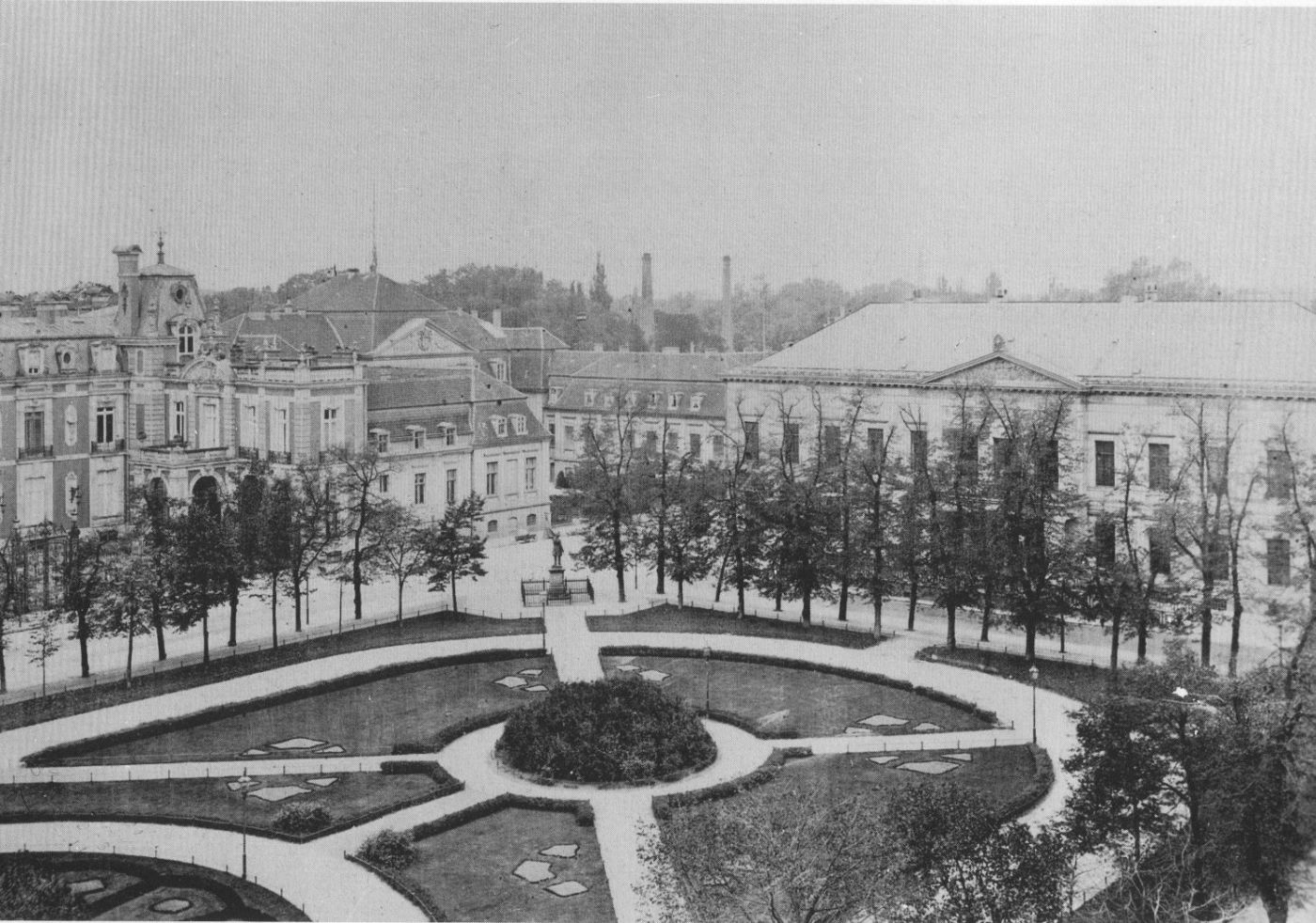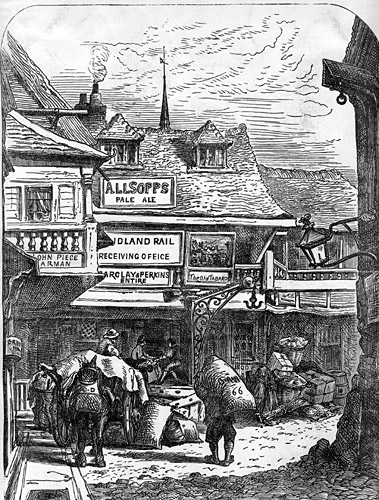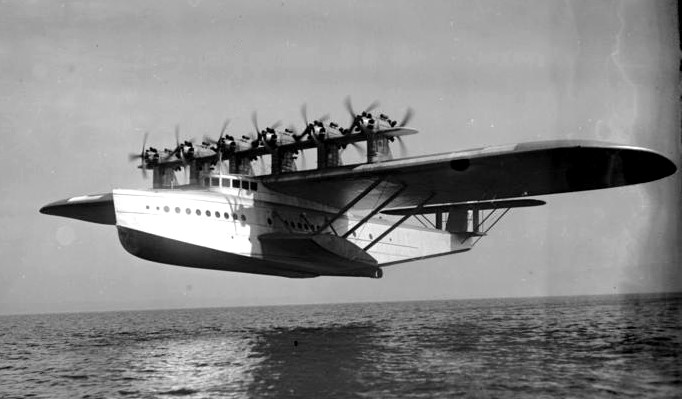|
Hotel Kaiserhof (Berlin)
Hotel Kaiserhof was a luxury hotel in Wilhelmplatz, Berlin, Germany. It opened in October 1875. It was located next to the Reich Chancellery in what was at the time the city's "government quarter". Berlin's first "grand hotel" it was the creation of the "Berlin Hotel AG" company, founded in 1872 and subsequently renamed "Berliner Hotelgesellschaft". The commission for the building went to the architects Hude & Hennicke. A few days after the opening ceremony in October 1875 the building was destroyed by fire. It reopened in 1876. The Kaiserhof offered more than 260 rooms which were fitted out in a modern and luxurious manner. It was the first Berlin hotel in which every room had an electricity supply, its own bathroom and its own telephone. The hotel also featured steam heating, pneumatic elevators/lifts. The kitchens used gas cookers. Electric power came from Berlin's second power station, recently built in Mauerstraße by Siemens & Halske. British PM Benjamin Disra ... [...More Info...] [...Related Items...] OR: [Wikipedia] [Google] [Baidu] |
Wilhelmplatz
Wilhelmplatz was a square in the Mitte district of Berlin, at the corner of Wilhelmstrasse and Voßstraße. The square also gave its name to a Berlin U-Bahn station which has since been renamed Mohrenstraße. A number of notable buildings were constructed around the square, including the old Reich Chancellery (former Palais Schulenburg), the building of the Ministry of Finance and the ''Kaiserhof'' grand hotel built in 1875. Wilhelmplatz in the 18th century Location of the Square The square was originally laid out in 1721 over the course of the Friedrichstadt expansion and obtained the name Wilhelmplatz in 1749, after King Frederick William I of Prussia. Engineer and chairman of the state building commission Christian Reinhold von Derschau led the project. He was advised by the King's senior and court building directors, Johann Phillipp Gerlach and Johann Friedrich Grael, respectively, who were in charge of the architectural design. Under their influence, the building commissi ... [...More Info...] [...Related Items...] OR: [Wikipedia] [Google] [Baidu] |
Buildings And Structures In Berlin Destroyed During World War II
A building, or edifice, is an enclosed structure with a roof and walls standing more or less permanently in one place, such as a house or factory (although there's also portable buildings). Buildings come in a variety of sizes, shapes, and functions, and have been adapted throughout history for a wide number of factors, from building materials available, to weather conditions, land prices, ground conditions, specific uses, prestige, and aesthetic reasons. To better understand the term ''building'' compare the list of nonbuilding structures. Buildings serve several societal needs – primarily as shelter from weather, security, living space, privacy, to store belongings, and to comfortably live and work. A building as a shelter represents a physical division of the human habitat (a place of comfort and safety) and the ''outside'' (a place that at times may be harsh and harmful). Ever since the first cave paintings, buildings have also become objects or canvasses of much artistic ... [...More Info...] [...Related Items...] OR: [Wikipedia] [Google] [Baidu] |
Demolished Buildings And Structures In Berlin
Demolition (also known as razing, cartage, and wrecking) is the science and engineering in safely and efficiently tearing down of buildings and other artificial structures. Demolition contrasts with deconstruction, which involves taking a building apart while carefully preserving valuable elements for reuse purposes. For small buildings, such as houses, that are only two or three stories high, demolition is a rather simple process. The building is pulled down either manually or mechanically using large hydraulic equipment: elevated work platforms, cranes, excavators or bulldozers. Larger buildings may require the use of a wrecking ball, a heavy weight on a cable that is swung by a crane into the side of the buildings. Wrecking balls are especially effective against masonry, but are less easily controlled and often less efficient than other methods. Newer methods may use rotational hydraulic shears and silenced rock-breakers attached to excavators to cut or break thro ... [...More Info...] [...Related Items...] OR: [Wikipedia] [Google] [Baidu] |
Defunct Hotels In Germany
{{Disambiguation ...
Defunct (no longer in use or active) may refer to: * ''Defunct'' (video game), 2014 * Zombie process or defunct process, in Unix-like operating systems See also * * :Former entities * End-of-life product * Obsolescence Obsolescence is the state of being which occurs when an object, service, or practice is no longer maintained or required even though it may still be in good working order. It usually happens when something that is more efficient or less risky r ... [...More Info...] [...Related Items...] OR: [Wikipedia] [Google] [Baidu] |
Hotels Disestablished In 1943
A hotel is an establishment that provides paid lodging on a short-term basis. Facilities provided inside a hotel room may range from a modest-quality mattress in a small room to large suites with bigger, higher-quality beds, a dresser, a refrigerator and other kitchen facilities, upholstered chairs, a flat screen television, and en-suite bathrooms. Small, lower-priced hotels may offer only the most basic guest services and facilities. Larger, higher-priced hotels may provide additional guest facilities such as a swimming pool, business centre (with computers, printers, and other office equipment), childcare, conference and event facilities, tennis or basketball courts, gymnasium, restaurants, day spa, and social function services. Hotel rooms are usually numbered (or named in some smaller hotels and B&Bs) to allow guests to identify their room. Some boutique, high-end hotels have custom decorated rooms. Some hotels offer meals as part of a room and board arrangement. In Jap ... [...More Info...] [...Related Items...] OR: [Wikipedia] [Google] [Baidu] |
Hotels Established In 1875
A hotel is an establishment that provides paid lodging on a short-term basis. Facilities provided inside a hotel room may range from a modest-quality mattress in a small room to large suites with bigger, higher-quality beds, a dresser, a refrigerator and other kitchen facilities, upholstered chairs, a flat screen television, and en-suite bathrooms. Small, lower-priced hotels may offer only the most basic guest services and facilities. Larger, higher-priced hotels may provide additional guest facilities such as a swimming pool, business centre (with computers, printers, and other office equipment), childcare, conference and event facilities, tennis or basketball courts, gymnasium, restaurants, day spa, and social function services. Hotel rooms are usually numbered (or named in some smaller hotels and B&Bs) to allow guests to identify their room. Some boutique, high-end hotels have custom decorated rooms. Some hotels offer meals as part of a room and board arrangement. In J ... [...More Info...] [...Related Items...] OR: [Wikipedia] [Google] [Baidu] |
Hotel Buildings Completed In 1875
A hotel is an establishment that provides paid lodging on a short-term basis. Facilities provided inside a hotel room may range from a modest-quality mattress in a small room to large suites with bigger, higher-quality beds, a dresser, a refrigerator and other kitchen facilities, upholstered chairs, a flat screen television, and en-suite bathrooms. Small, lower-priced hotels may offer only the most basic guest services and facilities. Larger, higher-priced hotels may provide additional guest facilities such as a swimming pool, business centre (with computers, printers, and other office equipment), childcare, conference and event facilities, tennis or basketball courts, gymnasium, restaurants, day spa, and social function services. Hotel rooms are usually numbered (or named in some smaller hotels and B&Bs) to allow guests to identify their room. Some boutique, high-end hotels have custom decorated rooms. Some hotels offer meals as part of a room and board arrangement. In J ... [...More Info...] [...Related Items...] OR: [Wikipedia] [Google] [Baidu] |
Hotels In Berlin
A hotel is an establishment that provides paid lodging on a short-term basis. Facilities provided inside a hotel room may range from a modest-quality mattress in a small room to large suites with bigger, higher-quality beds, a dresser, a refrigerator and other kitchen facilities, upholstered chairs, a flat screen television, and en-suite bathrooms. Small, lower-priced hotels may offer only the most basic guest services and facilities. Larger, higher-priced hotels may provide additional guest facilities such as a swimming pool, business centre (with computers, printers, and other office equipment), childcare, conference and event facilities, tennis or basketball courts, gymnasium, restaurants, day spa, and social function services. Hotel rooms are usually numbered (or named in some smaller hotels and B&Bs) to allow guests to identify their room. Some boutique, high-end hotels have custom decorated rooms. Some hotels offer meals as part of a room and board arrangement. In Jap ... [...More Info...] [...Related Items...] OR: [Wikipedia] [Google] [Baidu] |
Georg Elser
Johann Georg Elser (; 4 January 1903 – 9 April 1945) was a German worker who planned and carried out an elaborate assassination attempt on Adolf Hitler and other high-ranking Nazi leaders on 8 November 1939 at the Bürgerbräukeller in Munich (known as the Bürgerbräukeller Bombing). Elser constructed and placed a bomb near the platform from which Hitler was to deliver a speech. It did not kill Hitler, who left earlier than expected, but it did kill 8 people and injured 62 others. Elser was held as a prisoner for more than five years until he was executed at Dachau concentration camp less than a month before the surrender of Nazi Germany. Background Family and early life Georg Elser (the name normally used to refer to him) was born in Hermaringen, Württemberg, to Ludwig Elser and Maria Müller. His parents married one year after his birth, and Maria moved to Königsbronn to live with Ludwig on his smallholding. His father was a timber merchant, while his mother worked ... [...More Info...] [...Related Items...] OR: [Wikipedia] [Google] [Baidu] |
Der Tagesspiegel
''Der Tagesspiegel'' (meaning ''The Daily Mirror'') is a German daily newspaper. It has regional correspondent offices in Washington D.C. and Potsdam. It is the only major newspaper in the capital to have increased its circulation, now 148,000, since German reunification, reunification. ''Der Tagesspiegel'' is a Liberalism in Germany, liberal newspaper that is classified as Centrism, centrist media in the context of German politics. History and profile Founded on 27 September 1945 by Erik Reger, Walther Karsch and Edwin Redslob, ''Der Tagesspiegel'' main office is based in Berlin at Askanischer Platz in the locality of Kreuzberg, about from Potsdamer Platz and the former location of the Berlin Wall. For more than 45 years, ''Der Tagesspiegel'' was owned by an independent Financial endowment, trust. In 1993, in response to an increasingly competitive publishing environment, and to attract investments required for technical modernisation, such as commission of a new printing pla ... [...More Info...] [...Related Items...] OR: [Wikipedia] [Google] [Baidu] |
Embassy
A diplomatic mission or foreign mission is a group of people from a state or organization present in another state to represent the sending state or organization officially in the receiving or host state. In practice, the phrase usually denotes an embassy, which is the main office of a country's diplomatic representatives to another country; it is usually, but not necessarily, based in the receiving state's capital city. Consulates, on the other hand, are smaller diplomatic missions that are normally located in major cities of the receiving state (but can be located in the capital, typically when the sending country has no embassy in the receiving state). As well as being a diplomatic mission to the country in which it is situated, an embassy may also be a nonresident permanent mission to one or more other countries. The term embassy is sometimes used interchangeably with chancery, the physical office or site of a diplomatic mission. Consequently, the terms "embassy reside ... [...More Info...] [...Related Items...] OR: [Wikipedia] [Google] [Baidu] |








